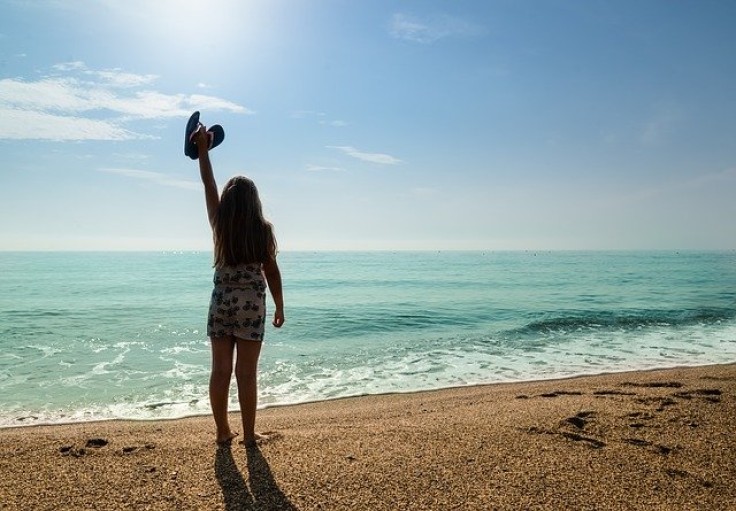
UC San Diego scientists have found a way to make biodegradable flip-flops from algae.
Flip-flops account for a huge amount of plastic waste in the world. Sadly, these wastes end up in our landfills, waterways, and oceans. In fact, more than one billion flip-flops are manufactured every year.
Flip-flops make up 25 percent of plastic pollution in our oceans. If the current problem is not addressed, we could be seeing 13 billion metric tons of plastic polluting our environment in 2050.
Addressing the flip-flop pollution problem
In the hopes of addressing this environmental problem scientists at US San Diego have formulated polymers made from algae oil. These polyurethane foams were made to meet commercial specifications for making flip-flop footbeds.
Professor Mike Burkart told Reuters that the process began with growing algae in raceway ponds. Once fully grown, they drain the water off until the algae are thick and paste-like. Then they extract the lipids which will base for making the material.
The latest research is part of a series of publications that offer solutions to the plastics problem. Project co-leader Stephen Mayfield said that it took them hundreds of formulations to come up with the one that can be used commercially. He said that for now, the foams have 52 percent bio content. However, they see that they can get to 100 percent in the future.
Algenesis president, Tom Cooke, said that people are now demanding products that address the environmental disaster. He said that Algenesis happened to be at the right place at the right time.
The researchers worked with Algenesis to make and degrade the footwear. May explained that they had to redevelop the plastic material using bio-based monomers from scratch. Then they subjected the foams to tests such as immersing them in compost and soil. It took 16 weeks for the material to degrade naturally.
They found several fungi and bacteria growing on the material. They then used a visualization process to confirm that the compost came from the original monomers. Hence, they said that it is possible to create a plastic raw material in which life is proportional to the life of the product.
Other potential commercial uses
Apart from flip-flops, the formulation has other useful applications as well. The report said that the polyurethane can be used foam cushions in seats and padding in luggage straps. It can also be used for yoga mats, foam insulation, and even tires.
Mayfield said that materials should have a lifespan proportional to the product. A product that one uses only for some year should not have a material that sits around for 500 years. He added that they want footwear that biodegrades whether in the ocean or on land.
You can read the published result at Science Direct. The report is titled "Bioresource Technology Reports at Science Direct."









